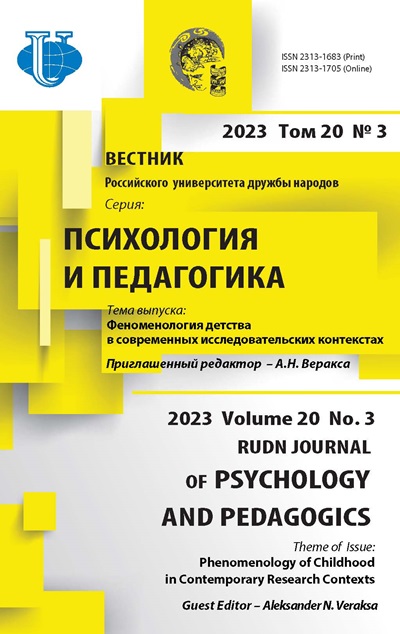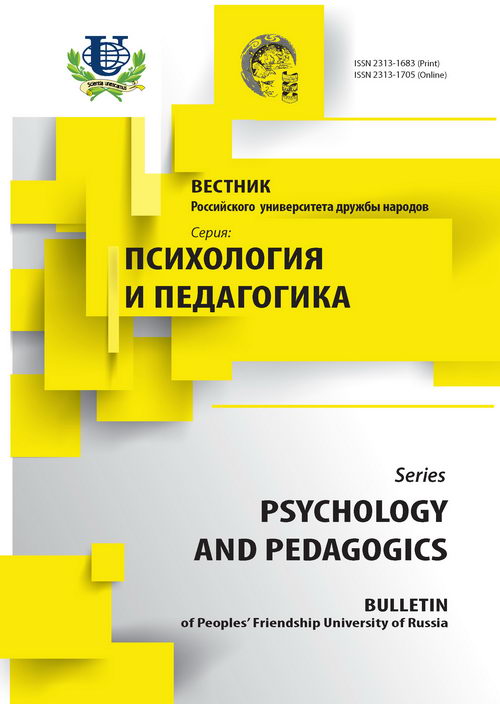COMPARATIVE ANALYSIS OF VALUE ORIENTATIONS IN RUSSIAN AND GREEK STUDENTS
- Authors: Polyanskaya EN1
-
Affiliations:
- Peoples’ Friendship University of Russia
- Issue: No 2 (2016)
- Pages: 66-74
- Section: Articles
- URL: https://journals.rudn.ru/psychology-pedagogics/article/view/13425
Cite item
Full Text
Abstract
This article is devoted to the problem of the value orientations of modern young people, who begin their independent life in the current conditions of the difficult changes in the political, social and economic life of the countries. Greece and Russia are two of the countries, which are in crisis due to the globalisation processes. The article gives the details of the results of the empirical study of the value orientations in Greek and Russian students and presents their comparative analysis. It identifies the similarity of the value orientations in Greek and Russian students, which appears in the fact that the value of health (it seems quite difficult to achieve) and the value of self-development and self-improvement (an easily achievable value) are important to the students of both groups; and the values of creativity and financially-secure life (the value, which is difficult to achieve) have little significance. The significant differences between the groups lie in the fact, that the Russian group is dominated by the people with the focus on business, the value of interesting work is important to them, they are more focused on business activity, as well as on love, and the interpersonal relations are less significant for them. The Greek students are often focused on themselves, on their families; freedom in actions, confidence and friendship are more important to them. The peculiarities of the value orientations of the Russian students are internally more conflicting: first of all, we are talking of an important value of love and its dissatisfaction, the important value of an interesting job and the idea that it is difficult to achieve these values. The internal conflict of the Greek students often concerns the importance and the low availability of the value of freedom. The study shows that the peculiarities of the value orientations of Russian students reflect the socio-economic changes in the society, while the values of Greek students remain more traditional for their culture and the way of life.
Keywords
About the authors
E N Polyanskaya
Peoples’ Friendship University of RussiaDepartment of Psychology and Pedagogy
References
















